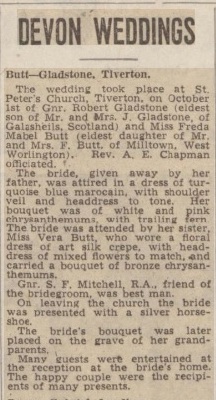During World War 2 a searchlight camp was located in East Worlington in a field to the east of Little Witheridge, now known as Camp Field. There were reportedly four huts, but all the evidence of buildings and equipment has long gone.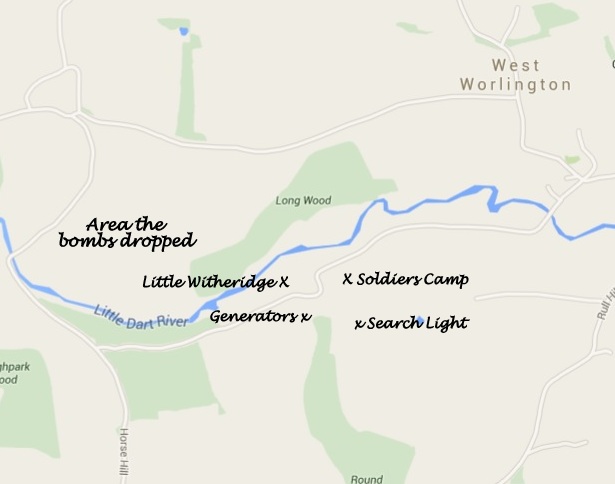
|
Maurice Butt, who was born in 1936, lived at Little Witheridge during the war and he has provided some of his recollection of the camp and the soldiers. Maurice recalls that there were four Nissan huts in the field where the soldiers lived and kept all their provisions and communication equipment. He estimated that there were between 20 and 30 men at the camp. To get water to the site the soldiers ‘tapped’ into the reservoir that was on the hillside by Long Wood, a water supply used by many of the dwellings in the area. |
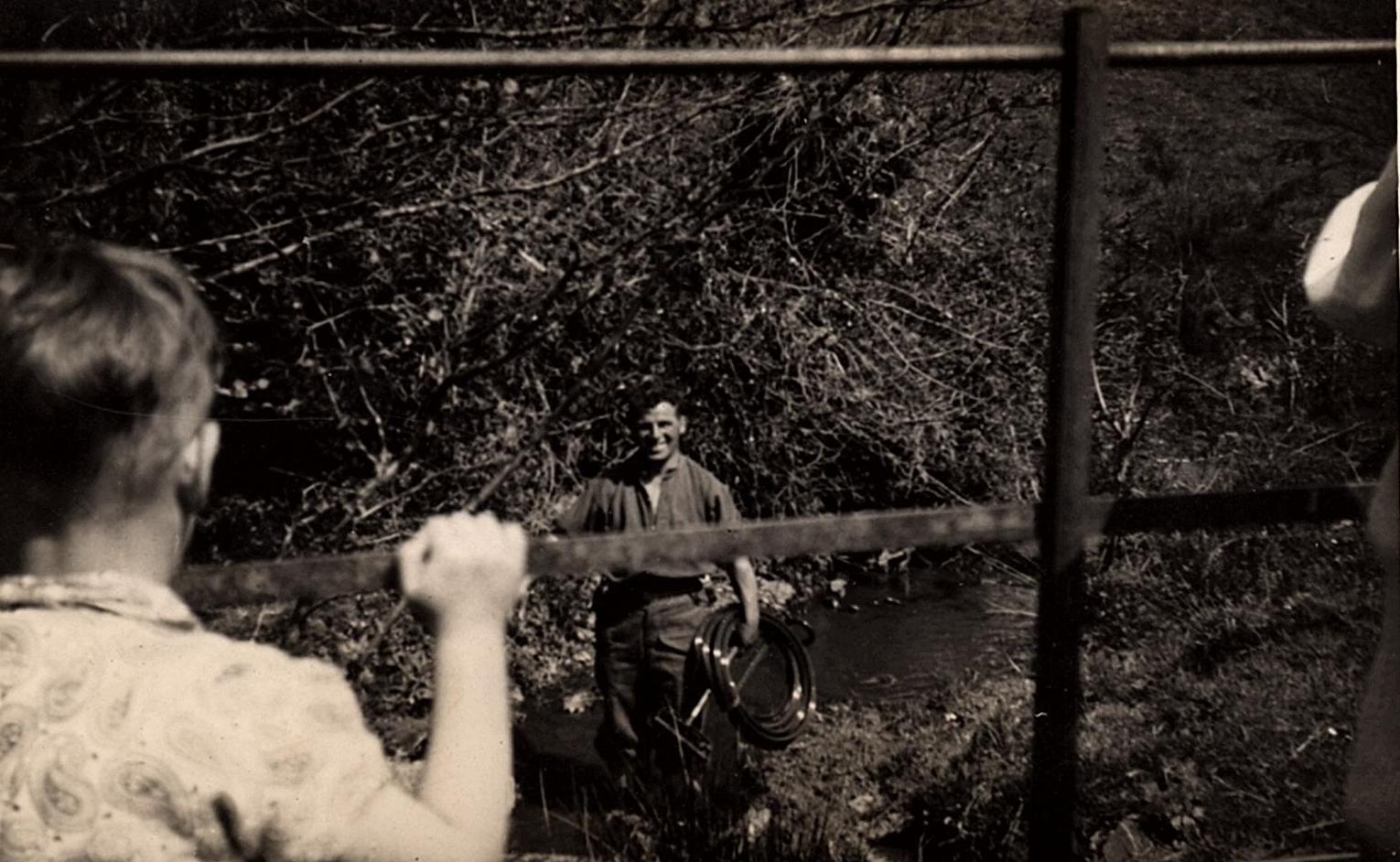 |
 |
The soldiers would wash in the river. They also used river water to wash their lorries. There were two large generators located in the quarry which is adjacent to camp field and opposite Little Witheridge. The soldiers would use the generators for their electricity which powered the searchlights. The searchlight was located at the top of camp field, on the brow of the hill, and when there was a warning of Luftwaffe in the area the light would be turned on and used to scan the skies. |
|
One night the Luftwaffe were flying overhead and presumably seeing the search light decided to drop its bombs. Maurice remembers four bombs being dropped and they landed in the field on the hillside near Long Wood, between the river and Affeton Castle. The following day Maurice went round the field and collected pieces of shrapnel. |
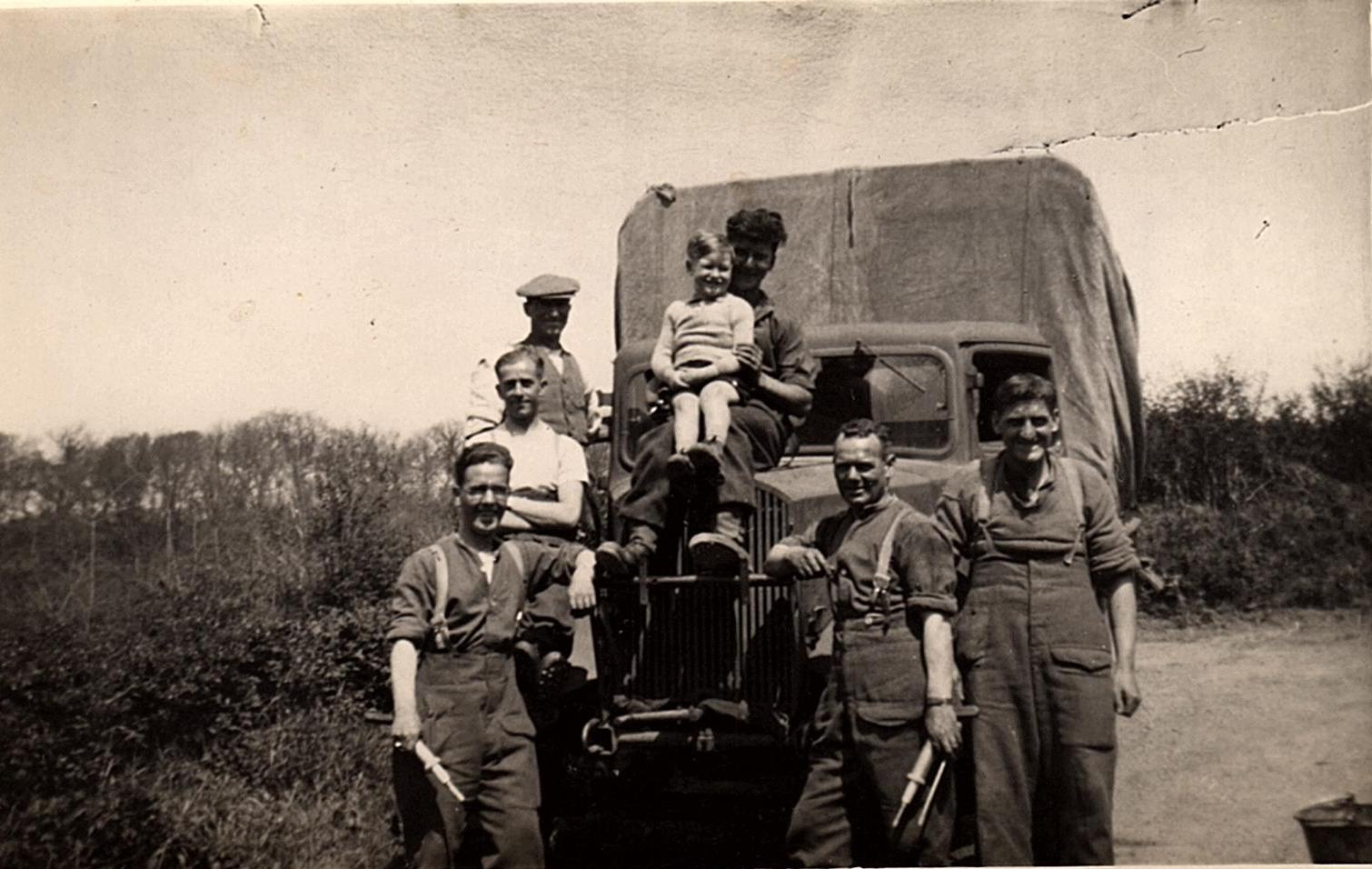 |
The soldiers would practice in preparation for any possible invasion. From time to time they would set up two roadblocks on the road between West Worlington and Horse Hill.
Vera Sanders (Lee) lived in West Worlington during the war. She writes:
We lived at Middle Church Cottage where I would watch my father digging the graves (although I was not supposed to) we also lived at Hensley Cottage………
During the war the army set up camp in the fields of Hensley farm, every day I had to go past them to go to the farm to get the milk, everyday without fail, they would call out “who goes there” and I still have a piece of the bomb that landed.
When the army arrived they had no food and they were really hungry so mother organised bread and cheese for them, the only problem was, when they came to get it they took all of our food as well, so we were the ones that went hungry.
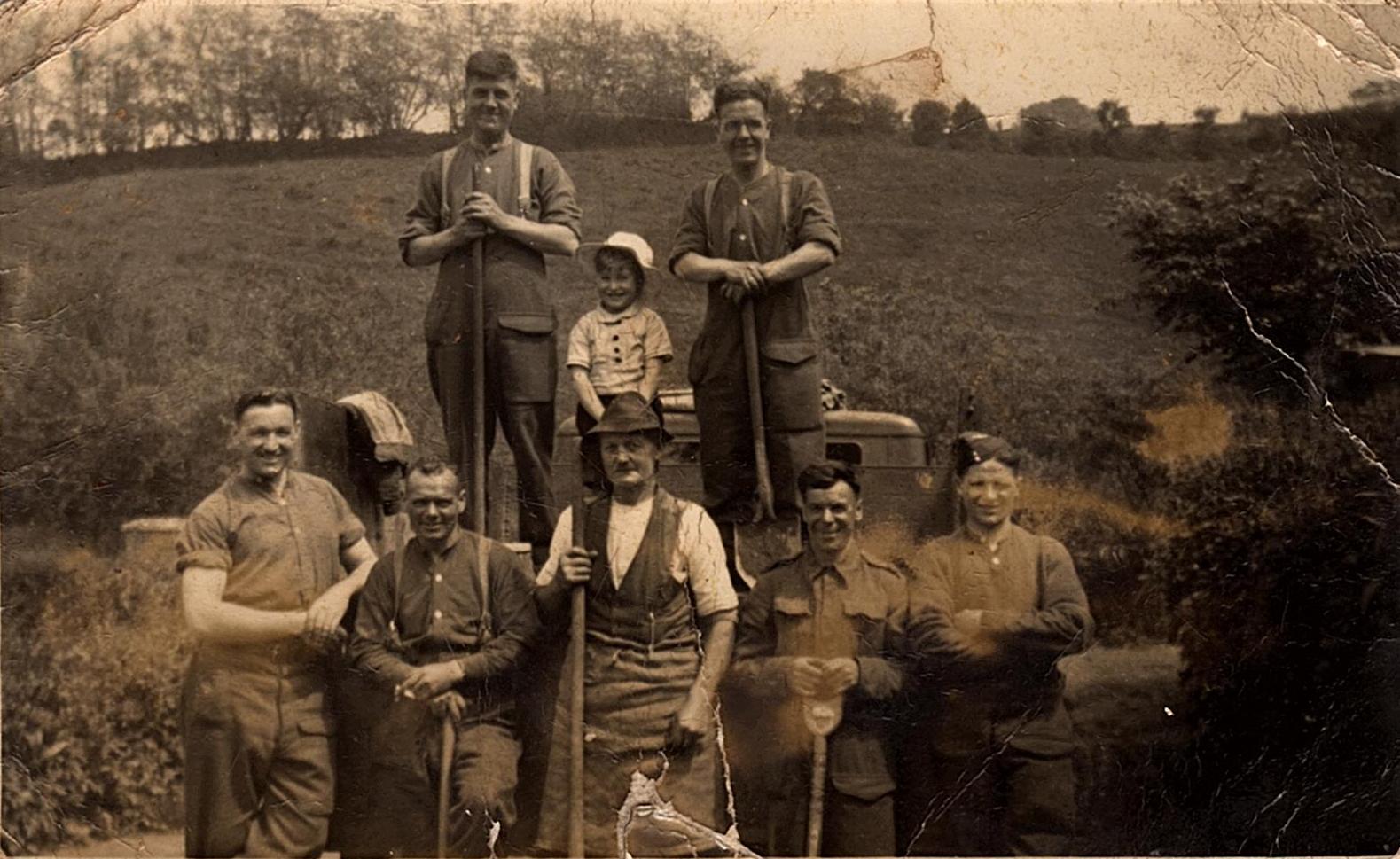 |
Towards the end of the war the soldiers would help to keep the roads maintained. The photograph shows Maurice with some of the soldiers and the local Lengthsman (the person employed to keep stretches of road neat and tidy). |
Maurice explained how one of his sisters, Freda, married one of the soldiers Gnr Robert Gladstone. The marriage was reported in the Western Times – Friday October 9th 1942.
